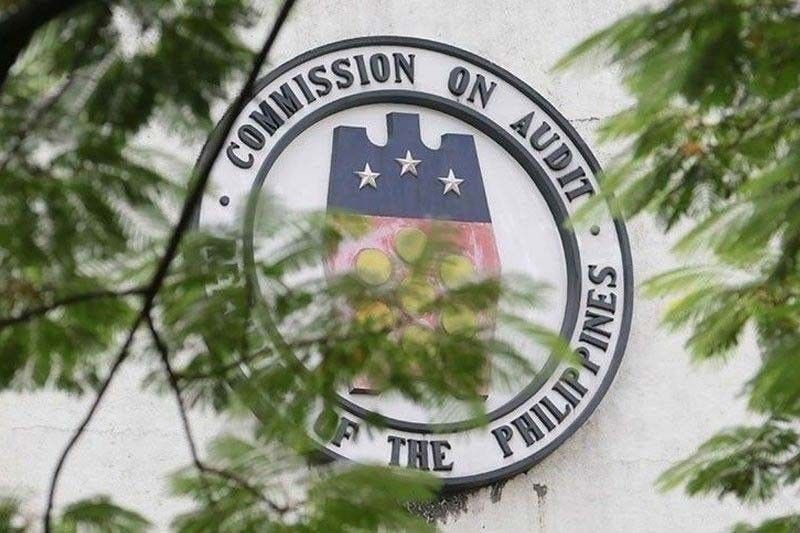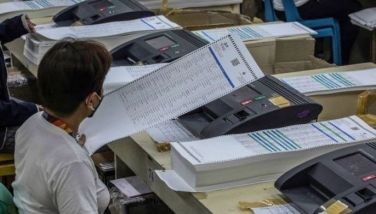COA flags BIR, SSS over lapses in wage subsidy program

MANILA, Philippines — The Commission on Audit (COA) has called out the Bureau of Internal Revenue (BIR) and the Social Security System (SSS) over lapses in the implementation of the P51-billion Small Business Wage Subsidy (SBWS) Program, resulting in failure to assist 41 percent or 717,442 target employees who were unable work due to strict community lockdowns at the height of the COVID-19 pandemic in 2020.
In its performance audit report on the government’s SBWS Program jointly implemented by the BIR and SSS, the COA noted that while 91 percent or 3.1 million employees out of the target of 3.4 million received wage subsidies, it appeared that those who needed assistance the most were not covered.
The COA said a review of the program’s implementation by category of the beneficiaries showed that those who received subsidies were mostly under Category B or from the “quasi-essential” businesses totaling 2,050,714 employees, 125 percent or an excess of 412,077 individuals out of the target of 1,638,637 employees under that category.
On the other hand, under the Category A or the “non-essential” businesses, only 59 percent or 1,050,971 employees were given subsidies, leaving 41 percent or 717,442 employees unassisted.
The audit body pointed out that employees under Category A were the ones who needed wage subsidies the most as non-essential workers were strictly prohibited from going to work during the imposition of the enhanced community quarantine (ECQ) at the height of the pandemic.
“Although the program nearly achieved its target for the number of affected beneficiaries [assisted], looking at the program’s target by category, 41 percent, or 717,442 target employees from non-essential businesses that cannot operate at all during the lockdown, which required financial assistance the most to withstand the negative impact of the pandemic, were underserved in comparison with the businesses that can partially operate,” the COA said.
The COA said that as admitted by the SSS, one of the factors affecting the attainment of the target under Category A was inadequate information dissemination.
The SBWS program was launched in April 2020 to support the formal economy sector businesses and their employees affected by the COVID-19 pandemic. It had a funding of P51 billion under Republic Act 11469, commonly called the “Bayanihan to Heal as One Act.”
Under the program, employees of small businesses who were unable to work due to the imposition of ECQ shall received financial assistance ranging from P5,000 to P8,000 per month, depending on the prevailing minimum wage rates in their respective regions from April 29 to June 25, 2020.
The SBWS program aimed to complement the government’s Social Amelioration Program, which catered to the informal business sector and indigent families affected by the COVID-19 pandemic.
Based on the SBWS program liquidation report submitted by the SSS as of April 30, 2022, P45.1 billion in financial assistance was provided to the 3.1 million beneficiary employees while P5.7 billion in unused fund for the program was already returned to the Bureau of Treasury (BTr).
The audit body said that despite the high fund utilization rate and the large number of employees assisted, lapses in validation of data and review of applications resulted in release of payments amounting P1.92 billion to 132,506 questionable or unqualified beneficiaries with duplicate or invalid Taxpayer Identification Number.
“COA recommends that SSS in coordination with the Department of Finance (DOF) and BIR should identify the ineligible beneficiaries through post-implementation verification of TINs and take necessary steps for the immediate recovery of the wage subsidies provided to ineligible beneficiaries,” the audit body said.
Furthermore, the COA said the absence of reliable databases of beneficiaries for verification coupled with the short time frame to implement the program resulted in P6.7 billion in unsuccessful or rejected payouts, of which P5.7 billion was returned to the BTr, instead of extending the program’s implementation.
The COA said that should a similar pandemic occur in the future, the DOF, BIR and SSS must “revisit and improve the identification process of target beneficiaries to ensure that all affected employees receive equal opportunity to apply to the program; enhance the system used in SBWS program to consider incorporating among other, features on preventive validation controls on data entry of applications, processing, approval and payout of wage subsidies.”
- Latest
- Trending





























